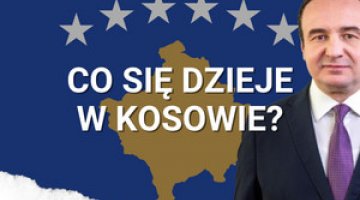Election in Kosovo: success for Albin Kurti and uncertain prospects for his continued rule
In the parliamentary election held in Kosovo on 9 February, the ruling left-wing coalition Vetëvendosje (Self-Determination), led by Prime Minister Albin Kurti, secured first place with 40.1% of the vote, according to preliminary results. Parties with origins in the Kosovo Liberation Army (UÇK), namely the Democratic Party of Kosovo (PDK) and the Alliance for the Future of Kosovo (AAK) – Initiative for Kosovo (NISMA), secured 22.2% and 7.5% of the vote, respectively. Meanwhile, the centrist Democratic League of Kosovo (LDK) garnered 17.6% of the vote. The preliminary results exclude votes cast by the diaspora (over 100,000 registered eligible voters). Voter turnout stood at 40.6%, approximately 8 percentage points lower than the record-high turnout in the 2021 election. The election proceeded peacefully and was positively evaluated in terms of adherence to democratic standards, which distinguishes Kosovo favourably compared to other countries in the region.
Despite his strong victory, Kurti’s prospects for remaining in power remain uncertain. The leader of the PDK, Bedri Hamza, has already announced his intention to form a cabinet uniting all opposition parties. The allocation of parliamentary seats is determined by Kosovo’s distinctive electoral system. In the 120-member parliament, 20 seats are reserved for minority representatives, including 10 for Serbs. These seats will be filled by the Belgrade-backed Serbian List.
Commentary
- The high level of support for Prime Minister Kurti’s party is due to his charisma and reputation for being uncorrupted. However, Vetëvendosje, a party with roots in an anti-establishment protest movement, failed to fulfil most of its promises during the previous term, including reforms in the judiciary, healthcare, and education. This shortfall was due to both a lack of preparedness for governance and obstruction within state institutions by individuals closely aligned with opposition forces. These groups had held power nearly continuously from Kosovo’s independence in 2008 until 2021. However, it should be noted that the government implemented direct financial transfer programmes for disadvantaged groups, such as young families and pensioners, to demonstrate its commitment to supporting less affluent citizens.
- Kurti’s popularity has been bolstered by his assertive policy towards Serbia and the Serbian minority in Kosovo. In the absence of progress in EU-mediated dialogue with Belgrade, the government in Pristina unilaterally took steps to dismantle Serbian-controlled institutions. Following a series of incidents (see ‘Unrest in northern Kosovo’; ‘Zbrojny incydent na północy Kosowa’), the authorities significantly increased police presence in municipalities inhabited by the Serbian majority in the north of the country. However, this also severely damaged Kosovo’s relations with the EU and the US, which viewed these measures as excessively harsh and expected the government to make concessions to its neighbour. Consequently, EU financial support was reduced, and Western capitals increasingly viewed Kurti as a politician unwilling to compromise or cooperate.
- The opposition parties failed to present citizens with a credible alternative, as reflected in the low voter turnout. Their reputation remains tarnished by strong ties to local oligarchs, a lack of accountability for numerous corruption scandals, and the public’s memory of their ineffective governance, characterised by internal conflicts and power struggles. Although these parties put forward an ambitious (and unfeasible) economic reform programme during the campaign, their primary shared goal was to remove Vetëvendosje from power and regain influence within state institutions. Consequently, most moderate voters disillusioned with Kurti’s leadership chose to abstain from voting.
- The relatively high voter turnout among the Serbian minority reflects a shift in Serbian President Aleksandar Vučić’s approach to Kosovo. The previous strategy of boycotting elections and institutions has been abandoned in favour of supporting the dominant Serbian List as the sole political representation of Kosovo’s Serbs. Failure to field candidates in the election could have strengthened the position of Serbian groups critical of Belgrade’s stance and made them more willing to cooperate with Pristina.
- With a closely matched result between Vetëvendosje and the opposition, forming a stable ruling coalition may prove extremely challenging. Given this uncertainty, foreign actors will play a crucial role in shaping the outcome. However, the incumbent prime minister has ruled out any cooperation with opposition parties. Only the final election results, translated into parliamentary seats, will determine whether support from minority groups (excluding the Serbs) will be sufficient for him to form a new government. Meanwhile, opposition forces are hoping that their declared commitment to constructive dialogue with Serbia and the Serbian minority, along with their willingness to make concessions, will secure Western backing. The stance of Donald Trump’s administration, which is known to be unfavourable towards Kurti, could be particularly significant in this context. However, removing Vetëvendosje from power, despite it securing nearly twice as many votes as the largest opposition party, could spark violent protests from its supporters and destabilise the country’s political situation.




